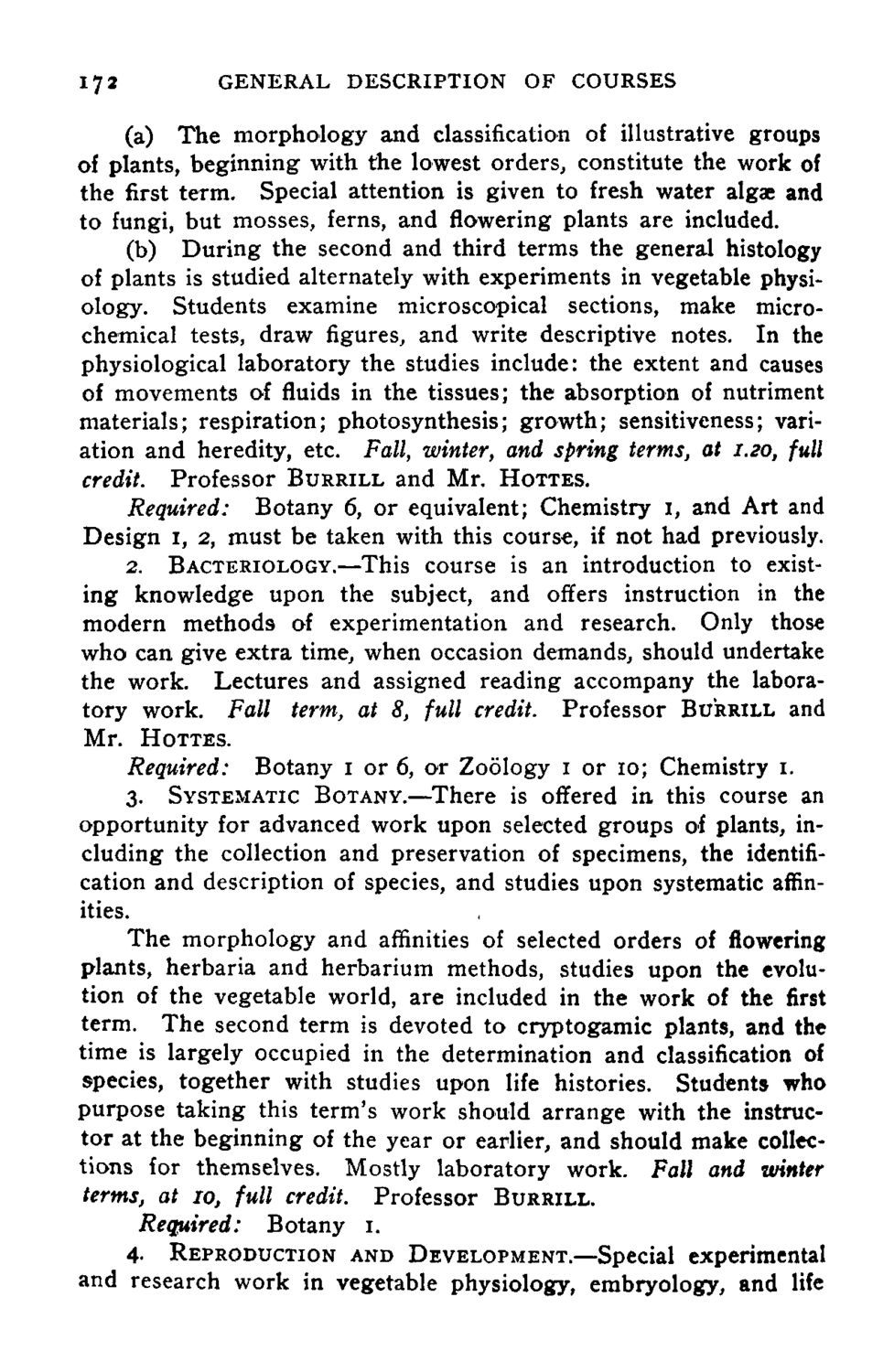| |
| |
Caption: Course Catalog - 1897-1898
This is a reduced-resolution page image for fast online browsing.

EXTRACTED TEXT FROM PAGE:
17* GENERAL DESCRIPTION OF COURSES (a) The morphology and classification of illustrative groups of plants, beginning with the lowest orders, constitute the work of the first term. Special attention is given to fresh water algae and to fungi, but mosses, ferns, and flowering plants are included. (b) During the second and third terms the general histology of plants is studied alternately with experiments in vegetable physiology. Students examine microscopical sections, make microchemical tests, draw figures, and write descriptive notes. In the physiological laboratory the studies include: the extent and causes of movements of fluids in the tissues; the absorption of nutriment materials; respiration; photosynthesis; growth; sensitiveness; variation and heredity, etc. Fall, winter, and spring terms, at i.zo, full credit. Professor BURRILL and Mr. HOTTES. Required: Botany 6, or equivalent; Chemistry I, and Art and Design I, 2, must be taken with this course, if not had previously. 2. BACTERIOLOGY.—This course is an introduction to existing knowledge upon the subject, and offers instruction in the modern methods of experimentation and research. Only those who can give extra time, when occasion demands, should undertake the work. Lectures and assigned reading accompany the laboratory work. Fall term, at 8, full credit. Professor BURRILL and Mr. HOTTES. Required: Botany 1 or 6, or Zoology 1 or 10; Chemistry 1. 3. SYSTEMATIC BOTANY.—There is offered in, this course an opportunity for advanced work upon selected groups of plants, including the collection and preservation of specimens, the identification and description of species, and studies upon systematic affinities. The morphology and affinities of selected orders of flowering plants, herbaria and herbarium methods, studies upon the evolution of the vegetable world, are included in the work of the first term. The second term is devoted to cryptogamic plants, and the time is largely occupied in the determination and classification of species, together with studies upon life histories. Students who purpose taking this term's work should arrange with the instructor at the beginning of the year or earlier, and should make collections for themselves. Mostly laboratory work. Fall and winter terms, at 10, full credit. Professor BURRILL. Required: Botany 1. 4. REPRODUCTION AND DEVELOPMENT.—Special experimental and research work in vegetable physiology, embryology, and life
| |